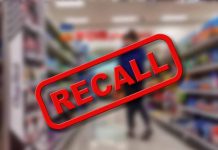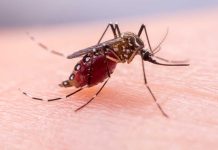
(DailyDig.com) – The U.S. Food and Drug Administration (FDA) posted on its website an announcement of a cookie dough recall that began on May 2, 2024, and is ongoing. The recall is due to a possible Salmonella contamination.
Rise Baking Company, under the name South Coast Baking, from Springdale, Arizona, voluntarily recalled their cookie dough shipped throughout the US. Eight products have been recalled from Panera Bread, Sam’s Club, Costco, and other smaller stores. There were 29,019 cases of cookie dough recalled.
The states included in the recall, per the FDA, include Wisconsin, Texas, Pennsylvania, Oregon, Oklahoma, Ohio, North Carolina, New York, New Jersey, Missouri, Minnesota, Michigan, Massachusetts, Maryland, Louisiana, Indiana, Illinois, Georgia, Florida, Colorado, and California.
The FDA has currently raised the recall risk level to Class II. According to the FDA’s website, a Class II recall involves a product that may give the user a reversible or temporary adverse medical condition, or the probability is remote for a serious medical condition.
Included in the recall are the following products:
Rise Baking Jumbo Chocolate Chunk
Panera Chocolate Chipper Cookie
Mini Chocolate Chip Cookie dough pucks
Member’s Mark Chocolate Chunk
Costco Chocolate Chunk Frozen Cookie Dough
If these products are in homes, dispose of them or return them to the original retailer.
Anyone who has consumed the products in question and is experiencing Salmonella symptoms should visit their health provider and inform them of their potential Salmonella exposure. To distinguish Salmonella from other illnesses, specific tests are necessary.
Some of the Salmonella symptoms include abdominal cramps, diarrhea, and fever between 12 and 72 hours after consuming the contamination. Healthy adults may just feel sick for four to seven days. If the diarrhea is severe, some cases may necessitate hospitalization.
Children, older adults, women who are pregnant, and individuals with weak immune systems may be more susceptible to illnesses so severe that they may become life-threatening.
Others may never develop symptoms but still spread Salmonella infections.
Copyright 2024, DailyDig.com













